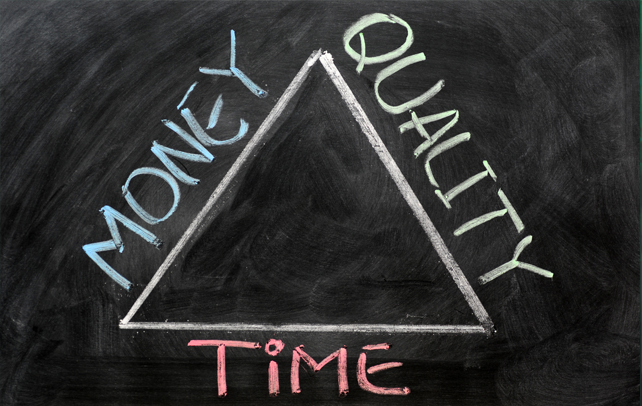Business Communication Etiquette

Communication is important in every aspect of life, including business. Lack of proper communication makes your message impaired or ambiguous and creates wrong impression about you on others which can affect your business very adversely. Being part of a business, it is important that you communicate with the clients clearly and effectively to maintain a good relationship with them. Your ignorance about formal way of communication or your ineptitude in expressing the business requirements clearly and correctly may very well be taken as impolite or offensive behavior by the client. In short, it has more serious impact than you guess. One important thing about communication is that it is not just about speaking to a person; it also includes the body gestures, facial expressions and even the pitch and tone of your voice and the modulations thereto. So, educate yourself on the do’s and don’ts of business communication with the help of the tips mentioned in the following write-up. Read on to know the communication etiquette in business.
Business Communication Rules
Introducing Yourself
- Maintain eye contact whenever you introduce yourself. This is very important in formal business meetings because it shows how confident you are.
- Shake hands gently and confidently with the other person.
- Maintain a presentable body language. It is not good to stand with drooping shoulders. This will give the impression that you are not confident enough and may affect the deal as well.
- Always keep a business card with you. Offer a business card once you introduce yourself to the other person.
Face To Face Communication
- It is very important to maintain high level of professionalism during business conversations. Address the other person with his proper name once both of you are done with introduction. Remember the name; do not ask the name repeatedly.
- Do not chew gum when you are in a professional meeting. Keep the conversation drama-free. There is no place for emotions in professional conversation.
- Don’t be overtly social by talking too much. Limit the conversation to professional topics.
- Listen carefully when the other person talks. Do not interfere or look around. Maintain the eye contact throughout the conversation.
- Do not gesture wildly when you talk or laugh; you should always control your body language.
- Do not talk about gruesome tales, your family, children, pets, etc. Talking about recent news and other generic subjects is acceptable but you must keep it brief.
Business Communication Over The Phone
- Neither must you speak in loud booming voice nor in a barely audible voice. You should not laugh in loud, boisterous manner.
- Always introduce yourself by your name, such as “Hello, James Clark here!” when you pick-up the phone. This is a basic etiquette when you handle business calls.
- If you need to transfer the call to another person, ask the caller to hold on and tell them that the call is being transferred. Also, let the person know the name and designation of the new person to which the call is being transferred. Say something like “please hold on sir, you call is being transferred to MR. Samuel Alex, HR Manager, who can help you with solving this issue.”
- Do not say “That’s not our policy.” This is pure breach of professionalism. It is your duty to help the client in resolving problems. No company policy can rationalize dissatisfied customers or clients.
- Never say “That’s not my department,” or “That’s not my job”. Any call related to business is valuable because you are part of the organization. Instead of saying “I’m not the person for this”, you can transfer the call to the right person or give the client the correct contact.
- Never ask the person to call you back later, citing that you are busy. If you are really busy with something, arrange for another person to pick up the call.
- Do not use nicknames during business calls no matter how close you are to the person in question; it creates confusion over who you are referring to and also sounds way too casual. For instance, instead of saying “Could you please connect me to Sam”, you must say the full name “Samuel Alex” even if you have been high-school friends.
Business Communication Through Email
- Make sure that you indicate a subject line in the field “Subject” because any business email without a subject will not be taken seriously.
- Start the Email with a highly formal salutation like Hello Mr. Anderson, Dear Ms. Jones, Dr. Osborne or just Ms Quinn etc until your new contact explicitly says, “call me Andy” or “you can call me Diane”.
- Always write the name properly like John B. Doe – this is the proper way to write a name. Both “john b doe” and “JOHN B DOE” are wrong.
- Use Bcc when you mail to a group of people and respect the privacy of the other ID’s.
- If you have mentioned any attachments in the mail, make sure that you have attached the file with the mail.
- Do not use an old correspondence and click the reply button just because you feel lazy to type the email address. Replying to a mail with a totally different subject creates a very bad impression. Always compose a new mail whenever you talk about a new subject.
- Type the letter in full sentences with proper sentence structure. Do not type in all caps or in all lower case. Punctuate properly and check for typos and grammatical errors before sending the mail.
- Respond to business email as fast as possible. Delayed responses are not appreciated well.
These were some important tips on business communication etiquette. It is very important to follow these etiquette as lack of professionalism in your conversation may affect your business. This article has provided you with tips on how to communicate professionally over the phone, through email and face to face. Hope this helps you maintain high levels of professionalism here after.












